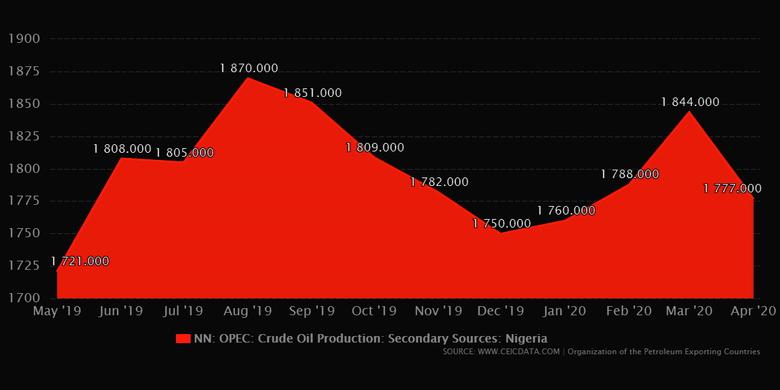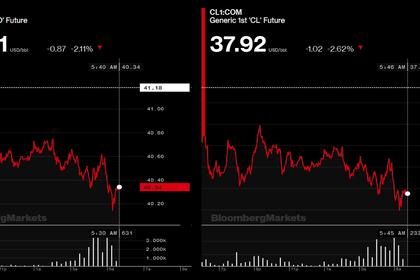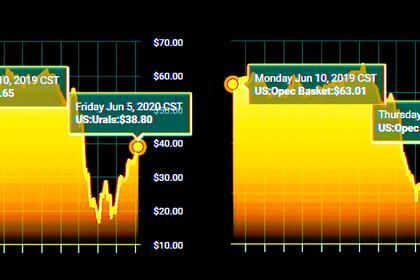
NIGERIA AGREES TO OPEC+

PLATTS - 10 Jun 2020 - Nigeria is seeking to comply fully with its OPEC+ cut obligations by mid-July, a top oil official said June 10, as it will compensate for over-production in May after the 23-member coalition agreed with quota-busting states to make up for under-compliance in May with deeper cuts in July, August and September.
Nigeria pumped just under 100,000 b/d above its quota for May because it couldn't shut its aging oil wells quickly enough, state-owned Nigeria National Petroleum Corp's group general manager, Mele Kyari, told Dubai-based Gulf Intelligence in a webcast interview.
"Our oversupply was a little less than 100,000 b/d against the agreed numbers, and so that is not really that significant," Kyari said.
"Shutdowns we are experiencing today will ensure latest by mid-July we would have come to full conformity."
Historic deal
OPEC+ is the midst of a historic output cut that aims to soak up the surplus in the market caused by the coronavirus pandemic. However laggards such as Nigeria prompted OPEC+ on June 6 to agree that non-compliant members cover any shortfalls in May and June compliance with extra production cuts in July, August and September.
OPEC and its allies also agreed to continue their current production cuts for May and June through July, except for Mexico, whose participation will end after this month. The cuts are scheduled to taper to 7.7 million b/d from August to December, and then down to 5.8 million b/d from 2021 through April 2022.
OPEC members Iraq, Nigeria and Angola, along with non-OPEC participant Kazakhstan have already been publicly called out by their counterparts for their overproduction.
Nigeria, a frequent compliance under-achiever, produced nearly 300,000 b/d in excess of its 1.412 million b/d quota in May, according to the latest S&P Global Platts OPEC+ survey.
OPEC and its allies slashed almost one-fifth of their crude oil production in May, the first month of their landmark supply accord, the survey showed.
New refineries
Besides working on its OPEC+ compliance, Nigeria is keen to halt gasoline imports by building new refineries and revamping old ones.
Nigeria shut down its four ailing refineries with a capacity of about 450,000 b/d in mid-December 2019, in the hope of upgrading them.
Kyari said they would come on stream by 2022 or 2023.
The refineries have operated sporadically due to years of neglect, forcing Africa's largest crude producer to rely heavily on imports to meets its domestic fuel needs. Nigeria typically consumes 1 million-1.25 million mt of gasoline a month.
Nigeria also hopes that the increase in output from the four state-owned refineries, coupled with output from the 650,000 b/d privately-owned Dangote refineries, would help it end gasoline imports
Nigeria also wants to build a condensate refinery with a capacity of 200,000 b/d by 2022.
-----
Earlier:










